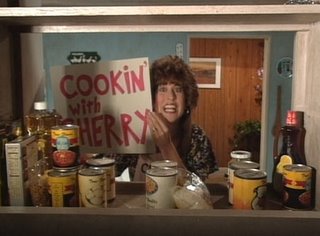
Look at the main ingredients of your recipe. Usually the main liquid ingredient can be increased to make up a small amount of an alcoholic ingredient you leave out. If the amount is less than a tablespoon, it can probably be omitted completely without any replacement.
Any variety of juices and/or tomato juice can often be substituted in marinades. The acidic component of the juice replaces the alcohol in breaking down the fibers in meat and making it more tender.

Extracts, flavorings, syrups and juices can be substituted for flavor-based liquors and liqueurs. They will usually need to be diluted. Remember that extracts contain alcohol, too. If a large amount of an extract is called for, be safe and buy alcohol-free extracts at a specialty store such as Whole Foods or Central Market (Frontier brand). They are manufactured using glycerin instead of alcohol.
Non-alcoholic wine or wine vinegar can be substituted for wine. Use non-alcoholic wines over cooking wine or sherry. The cooking wines and sherries are loaded with sodium which detracts from flavor and adds a salty flavor to the food. Tomato sauce or juice combined with Worcestershire sauce or soy sauce can work as a substitute for many robust liquors.
If the alcoholic ingredient in the recipe is intended to be the main flavor, find another recipe. It just will taste too different if you eliminate the alcohol.
see previous posts
Part one
Part two
Part three
Stay tuned for Part five

No comments:
Post a Comment